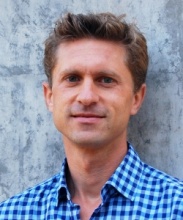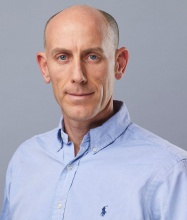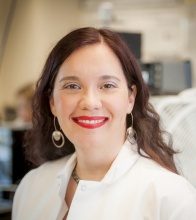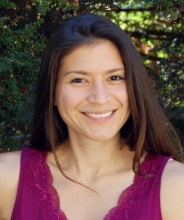CPS Events
Microarchitectural Analysis and Optimization of Datacenter Workloads
Abstract:
Data centers represent the nucleus of online activity and today represent over 25% of the overall microprocessor market. Data centersnow process a large number of worldwide compute cycles and areresponsible for a significant fraction of the planet's energyconsumption. As a result, improving the efficiency and performance ofdata center processors only by a single percent leads to billions ofdollars savings for cloud providers and their customers. Existingprocessors have been designed for traditional server applications andhence have not been optimized for contemporary Hyperscale workloads.In this talk, we will present an analysis of data center workloadsbased on a new cluster-wide profiling mechanism named AsmDB. We showhow AsmDB can be used to determine performance bottlenecks and presentnew prefetching techniques to improve the performance and efficiencyof the studied data center workloads.
Bio:
Heiner Litz is an Assistant Professor at the University of California,Santa Cruz working in the field of Computer Architecture and Systems.His research focuses on Data Center systems, in particular, onimproving the performance, cost, utilization, and efficiency of largedistributed computer systems. Before joining UCSC, Heiner Litz was aresearcher at Google and a Postdoctoral Research Fellow at StanfordUniversity. Dr. Litz received his MSc and Ph.D. from the University ofMannheim, Germany.
Goal-Conditioned Imitation Learning
Abstract:
Designing rewards for Reinforcement Learning (RL) is challenging because it needs to convey the desired task, be efficient to optimize, and be easy to compute. The latter is particularly problematic when applying RL to robotics, where detecting whether the desired configuration is reached might require considerable supervision and instrumentation. Furthermore, we are often interested in being able to reach a wide range of configurations, hence setting up a different reward every time might be impractical.
Bio:
Dr. Mariano Phielipp works at the Intel AI Lab inside the Intel Artificial Intelligence Products Group. His work includes research and development in deep learning, deep reinforcement learning, machine learning, and artificial intelligence. Since joining Intel, Dr. Phielipp has developed and worked on Computer Vision, Face Recognition, Face Detection, Object Categorization, Recommendation Systems, Online Learning, Automatic Rule Learning, Natural Language Processing, Knowledge Representation, Energy Based Algorithms, and other Machine Learning and AI-related efforts. Dr. Phielipp has also contributed to different disclosure committees, won an Intel division award related to Robotics, and has a large number of patents and pending patents. He has published on NeuriPS, ICML, ICLR, AAAI, IROS, IEEE, SPIE, IASTED, and EUROGRAPHICS-IEEE Conferences and Workshops.
Morphologically Controlled Composites: Emerging Materials for Extreme Environments
Abstract:
This seminar will present an overview of the microstructure and phase stability of hexaboride ceramics of controlled morphologies. Hexaborides are a unique class of non-oxide ceramics with many interesting electronic, magnetic and optical properties. The cubic crystal structure consists of covalently bonded boron octahedra surrounding a loosely-bonded metal ion, which donates electrons to the boron framework and directly influences the compound’s conductivity. Compatible metal ions are restricted in size by the boron sublattice, and therefore readily form solid solutions in mixed-ion compounds. CaB6, SrB6, and BaB6 powders have been produced, along with binary mixtures of each in 10 mol.% increments. Synchrotron radiation and detailed Raman spectroscopy have been used to detail the crystallography and bonding states in the materials. X-ray diffraction was used to study the phases formed, and while the (Ca-Sr)B6 and (Ba-Sr)B6 systems form single solid solutions, the (Ba-Ca)B6 system separates into two solid solution phases. Atomic-resolution TEM was subsequently used to determine defects in the materials. We will also present preliminary results on the formation of carbides. The compositionally diverse TaC1-x phase is an interstitial carbide having a rocksalt crystal structure and mixed covalent, metallic, and ionic bonding. Therefore, this material has an interesting combination of properties that in some respects are intermediate between typical ceramics and metals.
Bio:
Olivia Graeve is a Professor in the Department of Mechanical and Aerospace Engineering at UC San Diego, Director of the CaliBaja Center for Resilient Materials and Systems, and Faculty Director of the IDEA Engineering Student Center. She holds a Ph.D. in Materials Science and Engineering from the University of California, Davis, and a Bachelor’s degree in Structural Engineering from the University of California, San Diego. Her area of research focuses on the design and processing of new materials for extreme environments, including extremes of temperature, pressure, and radiation. She has been involved in many activities related to the recruitment and retention of women and Hispanic students in science and engineering and has received several prestigious awards including the National Science Foundation CAREER award, the 2006 Hispanic Educator of the Year award by the Society of Hispanic Professional Engineers, the 2010 Karl Schwartzwalder Professional Achievement in Ceramic Engineering Award by the American Ceramic Society, among many others. More recently, she has been inducted into the Tijuana Walk of Fame (2014) and to the Mexican Academy of Engineering (2016), and has been named a Fellow of the American Ceramic Society (2017). In addition, Forbes Magazine named her one of the 100 Most Powerful Women of Mexico (2017).
CITRIS/CPAR and CPSRC Seminar: The Economics of Robotics
Abstract:
This seminar is a review of the latest investments into the robotics industry, and how difficulties in the categorization of the robotics industry in US and overseas hinders awareness of emerging robotics technologies. In 2014, the robotics industry hit two tipping points. One was a huge increase in funding going into new areas of emerging robotics industries, and the other has been the move away from traditional market analytics based on sales figures to predict future growth, towards the much more complex analysis of disruption, market cycles, and effectively trying to read the entrails of the investment industry.
Bio:
Andra Keay is the Managing Director of Silicon Valley Robotics, the non-profit industry group supporting innovation and commercialization of robotics technologies. Andra is also founder of the Robot Launch Global Startup Competition, Robot Garden Maker Space, and Women in Robotics. She is a mentor, investor and advisor to startups, accelerators and think tanks, with a strong interest in commercializing socially positive robotics and AI. She joined CITRIS People and Robots Research Group as a Visiting Scholar.
Controlling Cellular Response
Abstract:
Natural systems exhibit tight gene regulation and robust cellular response in spite of inherent stochasticity and delays. However, the inherent variability of nature and our lack of understanding of the evolved regulation mechanisms makes it difficult to elicit predictable and consistent cellular response. In spite of this complexity, new technology combined with machine learning and applied mathematics can give us unprecedented control over nature. For example, synthetic biology, an engineering discipline that uses components of natural systems as building blocks, can be used to design new systems from the ground up. Knowledge of effective feedback control architectures can be used to design these networks. We show how current technology can be enhanced with mathematical methods to drive new applications such as precision medicine in the biomedical field or population control in ecology.
Bio:
Marcella Gomez is an Assistant Professor in Applied Mathematics at UCSC. Dr. Gomez completed a Ph.D in Mechanical Engineering at the California Institute of Technology in 2015. She joined UCSC faculty following a postdoctoral research fellowship at UC Berkeley. Her research focuses on mathematical modeling, analysis, and control of biological systems.






